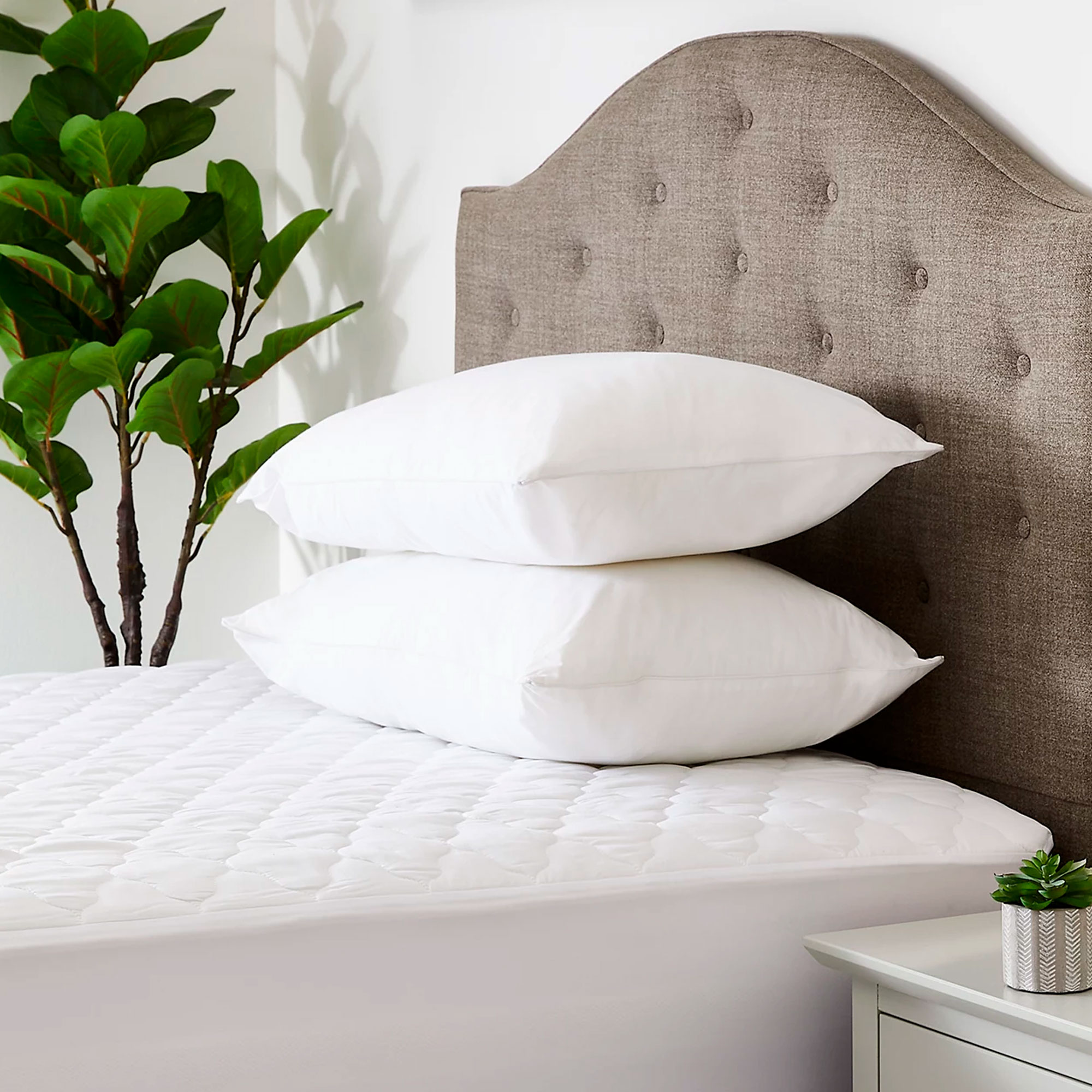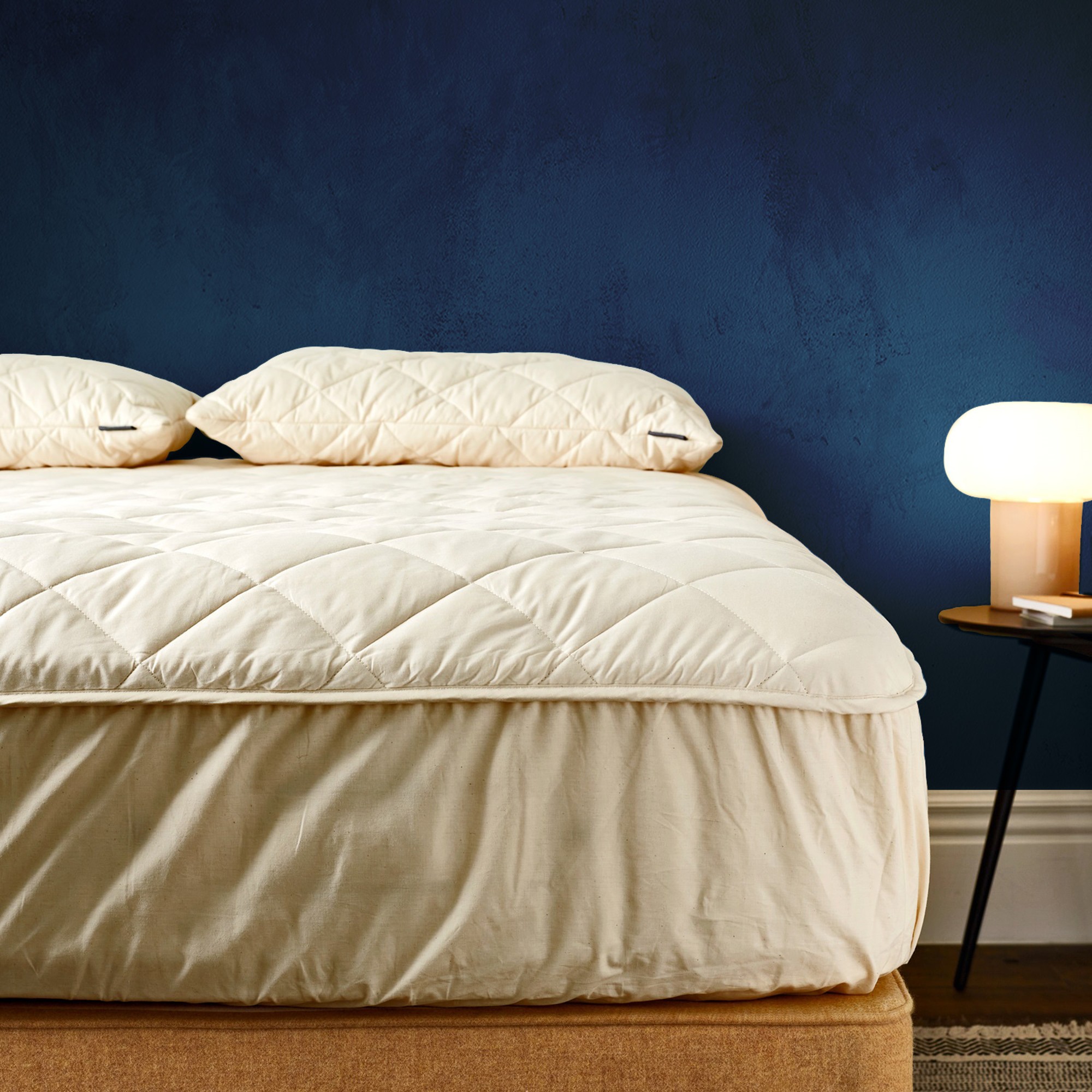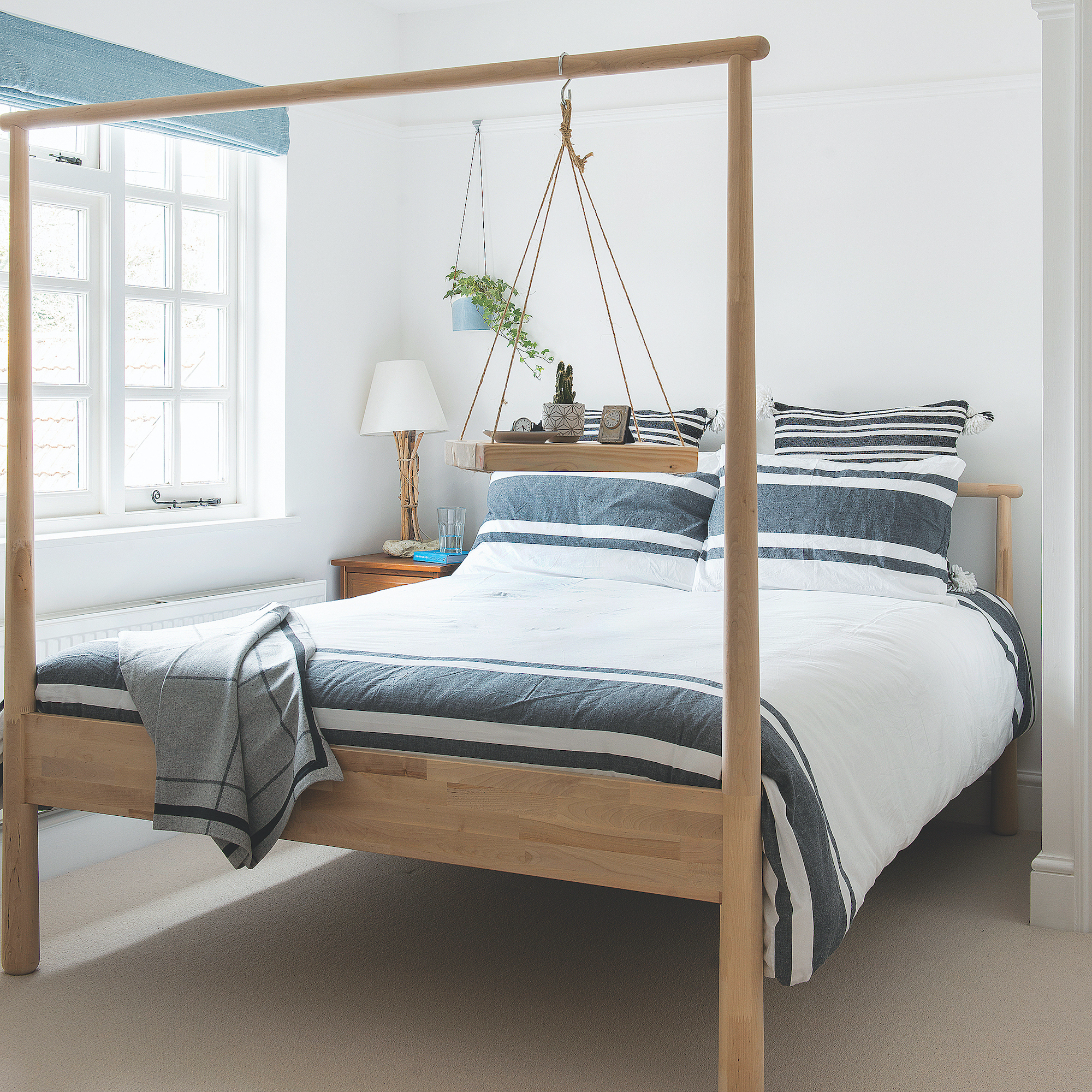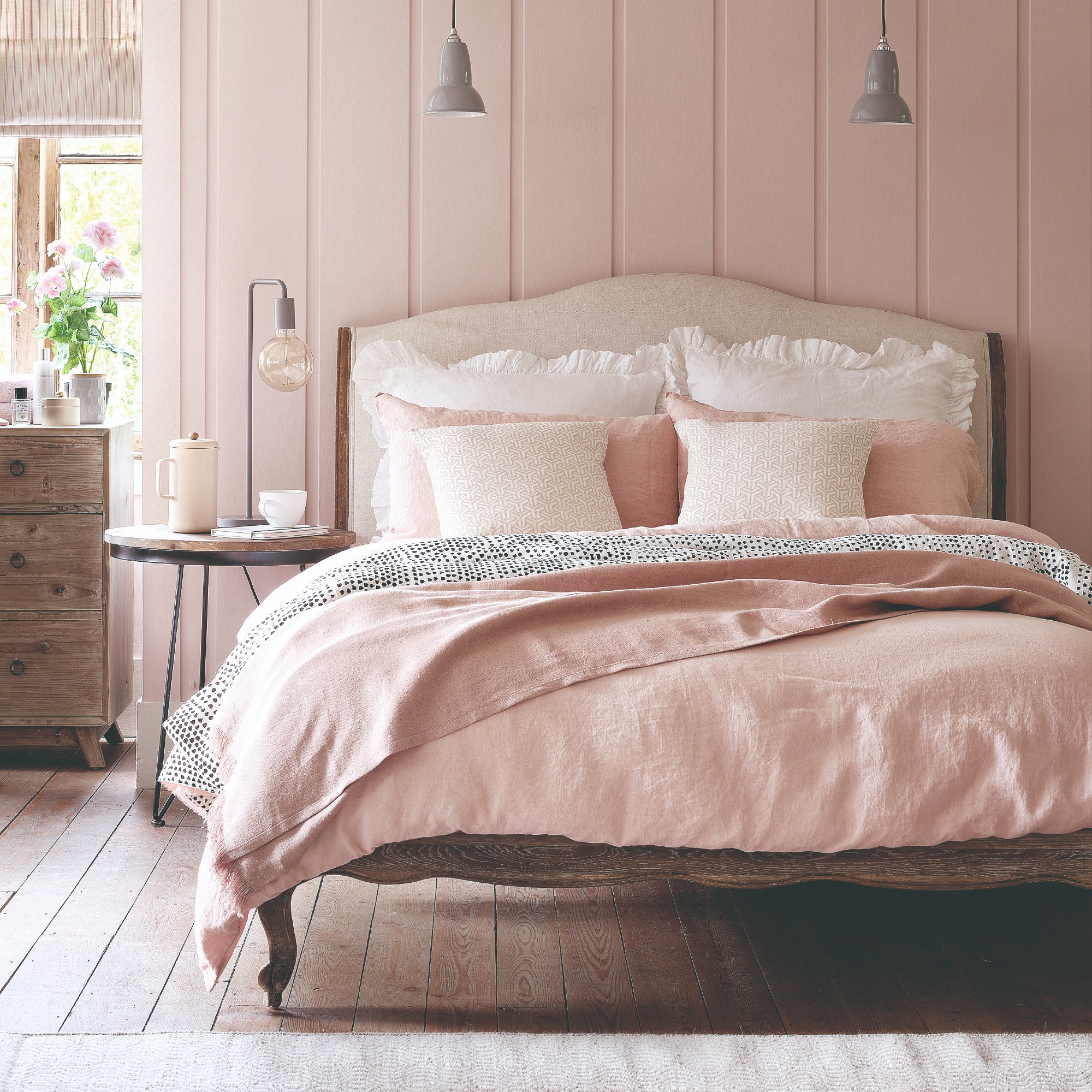
We can’t sugar coat this. Mattress protectors aren’t exactly exciting, but they are an absolute bedding essential. They protect your mattress and keep it cleaner. This prolongs the life of your mattress. When you consider how much mattresses cost, this can only be a good thing.
There’s a misconception that mattress protectors are those waterproof sheets you might remember from your childhood. But that’s not really what we’re talking about here. The best mattress protectors will add to your comfort while you sleep, as well as keeping things clean.
And there are loads of different mattress protectors on the market. From – yes, waterproof – to hypoallergenic and temperature regulating. But choosing the right mattress protector needn’t be bewildering – we’ve got all the advice to make sure you end up with the right one for you.
1. Lack of research
Don’t just opt for the first result that comes up when you Google ‘mattress protector’. You’re going to sleep on this night after night for hours. You owe it to yourself to get it right.
‘People often make the mistake of overlooking the importance of the fibre [the protector is] made of,’ says Chris Tattersall from Woolroom. ‘This will significantly influence the overall support, comfort, and durability of the topper, as well as the quality of your sleep.’

2. Incompatibility with your mattress
You don’t want to drop £1000s on your mattress, filled with silk and cashmere, only to get a mattress protector that doesn’t let you feel the benefit of those fibres.
‘Select a mattress protector that works with your mattress,’ says Laura Tudor, Bedroom Furniture, Filled Bedding and Mattress buyer at John Lewis & Partners. ‘If you have selected a natural mattress go for a natural mattress protector like our Cotton Quilted Mattress Protector. Similarly, our Synthetic Soft Touch Washable mattresses protector works well with mattresses from man-made fibres.’
3. Going for sweaty fabrics
Waterproof mattress protectors have their place, of course. But for most people, they’re not a brilliant idea. They trap moisture in, and can make you overheat very quickly. And they don’t wick away the sweat either. As well as disturbing your sleep by waking you up when you get too hot, sweaty fabrics can be a hygiene and allergy issue. Dust mites – the most-common house allergen in the UK – love humid environments. Grim, but true.
‘Avoid plastic based non-breathable protectors as this will tend to trade condensation and risk potential mould growth,’ says Laura Tudor of John Lewis and Partners. As well as the aforementioned dust mites, mould and mildew can cause allergic reactions in sleepers too.

4. Buying the wrong size
‘Ensure your mattress protector is big enough to fully cover the entire surface of your mattress,’ says Philippa Warford of the National Bed Federation.
Make no mistake, you need a mattress protector that fits your mattress. Sounds simple, but you’d be surprised how many people make this mistake. Too small and you won’t be covered, and too big and it’ll be lumpy underneath. Either way, it’s going to affect the quality of your sleep if you don’t have a well-fitting mattress protector.
5. Confusing mattress protectors and toppers
Despite both mattress protectors and mattress toppers fitting on your mattress, they do very different jobs. Yet many people get them mixed up.
A mattress topper will provide an extra layer of comfort or support. Whereas a mattress protector is there to keep your mattress clean and safe from allergens and germs.
6. Only buying one mattress protector
Because your mattress protector is stopping your mattress from dirt getting in, it’s getting dirty itself. When you wash your sheets, you need to wash your mattress protector too. ‘
It’s a good idea to buy two mattress protectors so that when one is in the wash, you won’t miss a night’s sleep without protecting your mattress,’ advises Philippa Warford from the National Bed Federation.

7. Not reading the care instructions
Make sure you know what you’re letting yourself in for with your mattress protector before you buy. It’s recommended you wash your mattress protector every 1-2 weeks to keep things as fresh as possible.
If you don’t have space to hang up your mattress protector to dry it out, look for one that can go in the tumble drier.
And if you have allergies, you might want to opt for a mattress protector that can be washed on a 60º cycle. Hot washes are best for banishing allergens such as dust mites.

8. Not buying a mattress protector
Thinking you don’t need a mattress protector is the biggest mistake to make. Even mattresses that are rarely used will be picking up dust and dust mites, and they need protecting.
Mattress protectors are an essential piece of sleep linen, like a duvet cover. It will keep everything hygienic and allergen free.
Mattress protectors that won't disappoint
If you need a waterproof mattress protector this is a great option that won't overheat you, and got a four-star review from our expert reviewers.
If you want to add a little temperature regulation to your bed this wool mattress protector is a great option.
If you're on the lookout for a mattress protector that's great value, Fogarty's soft touch mattress protector offers a good extra layer of protection between your sheet and your mattress.
FAQs
What should you look for in a mattress protector?
As the aim of your mattress protector is to keep your mattress clean, you want a protector that allows you to do that.
If the mattress protector is for a kids’ bed, or you’re liable to spilling your morning cup of tea in bed, go for a waterproof mattress. This will make changing beds super easy, and will protect the mattress underneath from any long-lasting damage or staining.
But unless you’re expecting spills and a lot of mess, you probably want to focus on your comfort in bed. That probably means finding a mattress protector that keeps you cool at night. Overheating is one of the most common reasons people wake up at night.
‘When looking for a mattress protector, customers should ideally look for natural, and where possible, organic mattress covers that don’t emit chemicals like those made from synthetic materials,’ says Chris Tattersall from Woolroom. ‘[Mattress protectors should] have a suitable level of comfort with a quality filling, such as washable wool. A mattress protector acts as the barrier between your mattress and your fitted sheet; therefore, if you’re a hot sleeper, choosing the right fibre is important to help manage heat.’
Does the type of mattress protector matter?
Absolutely the type of mattress protector you choose matters. If you choose the right mattress protector, it’ll extend the life of your mattress by a good few years. And mattresses are expensive, so you want to look after your investment.







